The importance of art in the interior industry
Art is fast becoming recognised as an essential component of a modern home, with influencers and interior designers singing the praises of gallery walls and the like
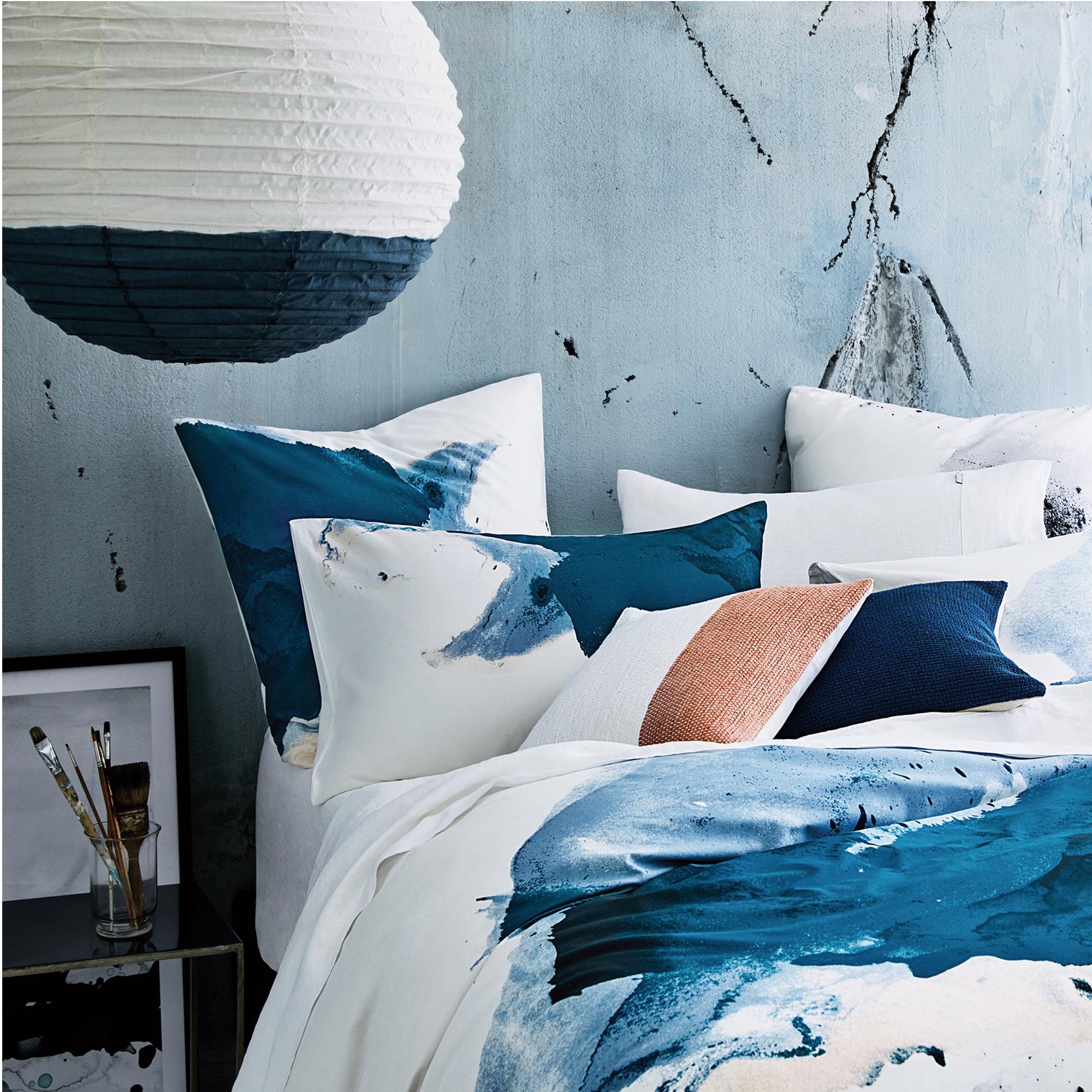
Your support helps us to tell the story
From reproductive rights to climate change to Big Tech, The Independent is on the ground when the story is developing. Whether it's investigating the financials of Elon Musk's pro-Trump PAC or producing our latest documentary, 'The A Word', which shines a light on the American women fighting for reproductive rights, we know how important it is to parse out the facts from the messaging.
At such a critical moment in US history, we need reporters on the ground. Your donation allows us to keep sending journalists to speak to both sides of the story.
The Independent is trusted by Americans across the entire political spectrum. And unlike many other quality news outlets, we choose not to lock Americans out of our reporting and analysis with paywalls. We believe quality journalism should be available to everyone, paid for by those who can afford it.
Your support makes all the difference.Art industry experts are saying the era of the billion dollar painting is inevitable, tracking the resurrection of art to its once revered status. The buoyant art market is showing no signs of slowing down, a forecast echoed in the recent sale of Leonardo da Vinci’s Salvator Mundi to the Louvre Abu Dhabi for a record-breaking $450.3m (£340m).
Founder of online art price database Artprice, Thierry Ehrmann, expects a “firm and durable growth” in the industry internationally. In the UK alone, the art market contributed £1.46bn to the economy in 2016, a comparatively slim figure you consider the net-value of its sales, which totalled £9.2bn.
But how does this translate for the consumer; the homeowner with an art collection comprised of inherited paintings, a commissioned piece or two, and a selection of glitter-clotted, handmade pasta frames? While very few of us will be working to a budget similar to that of the art buyer for the Louvre Abu Dhabi, we still want to invest our money wisely in pieces we love.
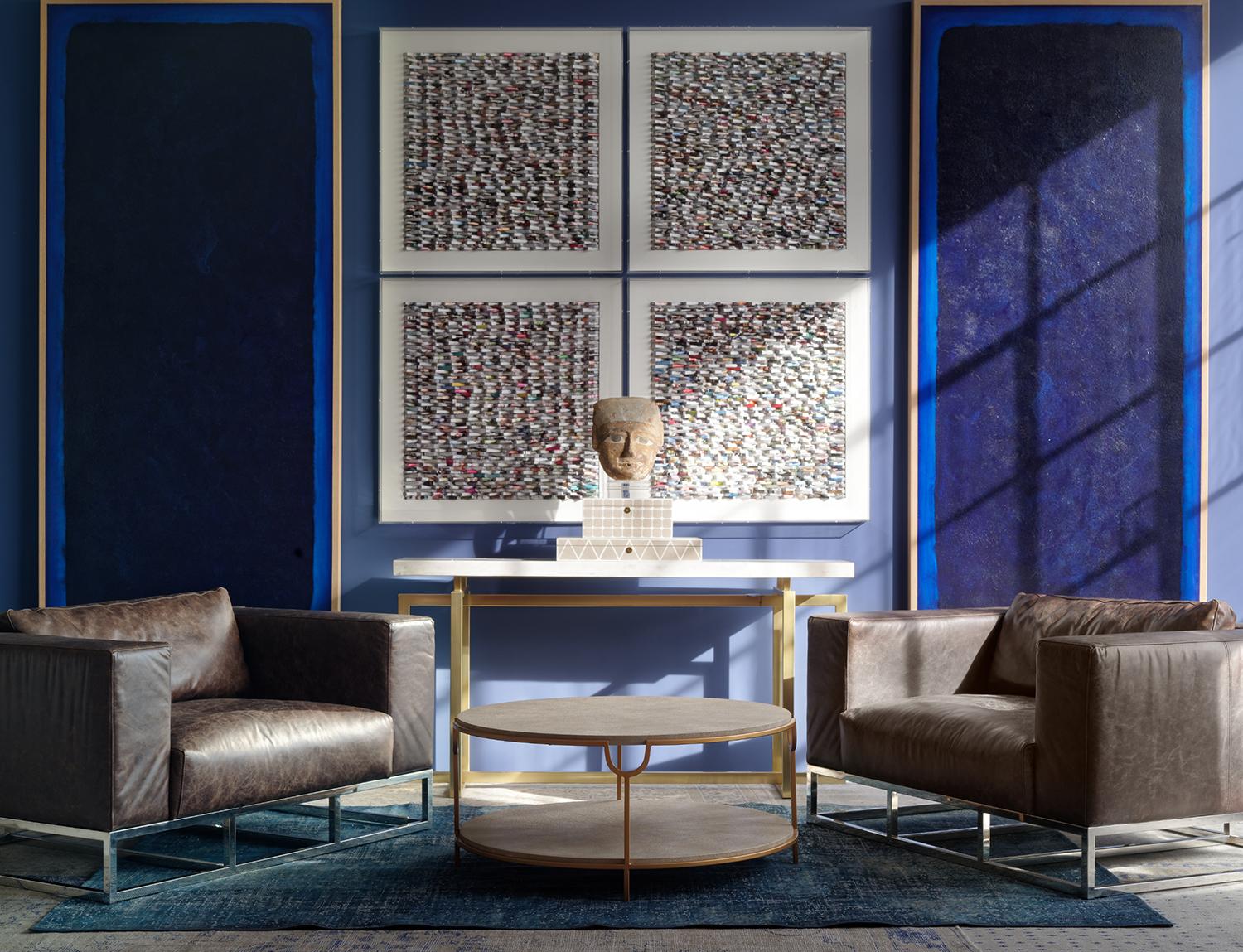
Art is fast becoming recognised as an essential component of a modern home, with influencers and interior designers singing the praises of gallery walls and the like. If you speak to almost any interior designer about the importance of art in the home, you’ll be met with a resounding, excited flurry about the inspiration it provides, the way it lifts a space, or the joy that comes with sourcing works from around the world.
However, this is not the full extent to the intermingling of the art and interiors industries. For homeowners, interior and product designers alike, art is paramount, powerful and primary.
Homes and interiors brands are also embracing the consumer’s urge to fill their homes with art by working closely with artists and galleries on collaborations, or taking it into their own hands to create branded artworks. For example, Andrew Martin has introduced a collection of exclusive artworks to supplement its vast, vault-like archive of furniture, cushions and objet d’art (all readily discoverable at the Walton Street showroom).
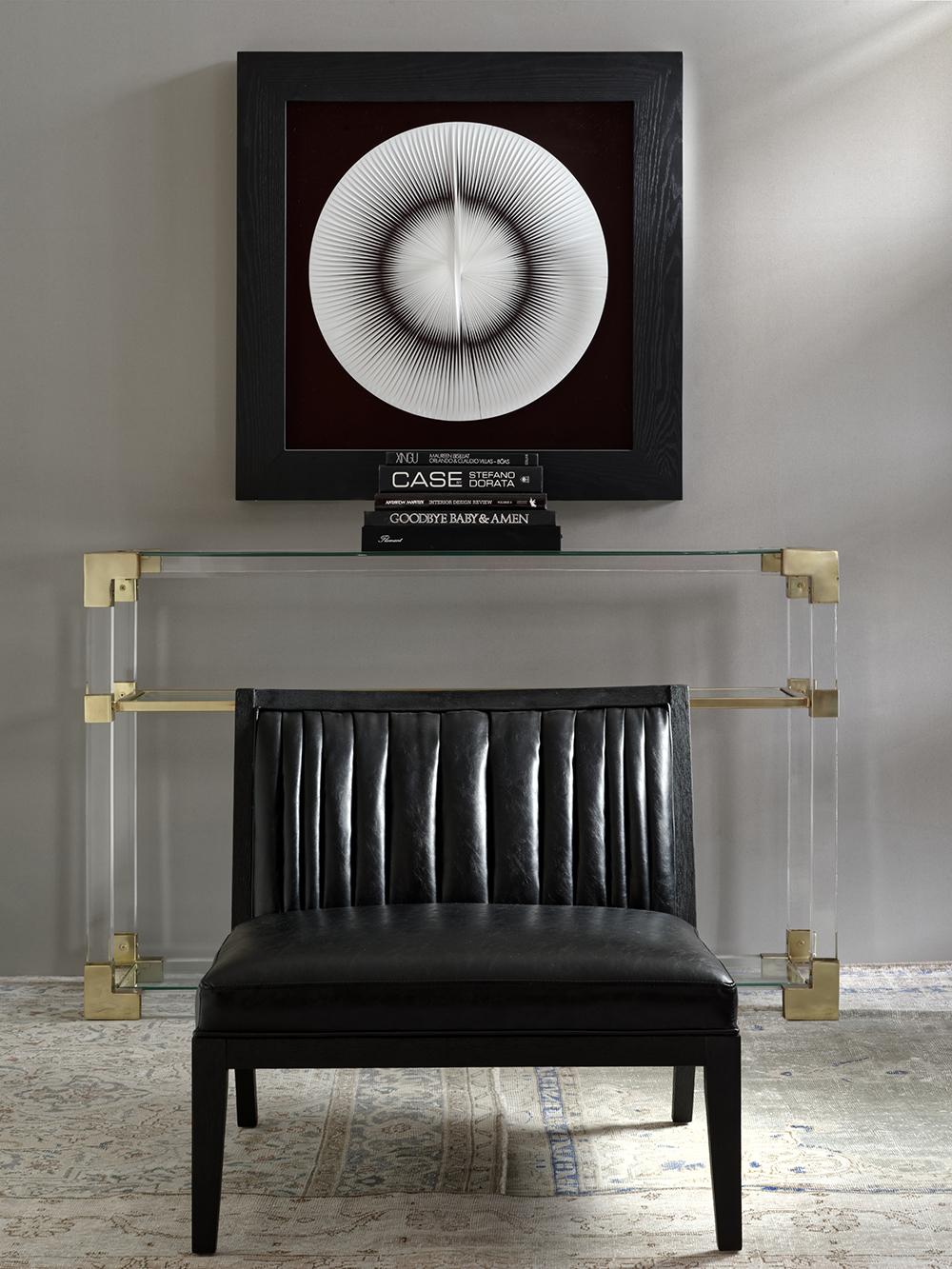
The collection includes a series of three-dimensional, diorama-like artworks displayed in box frames. The intricate works reimagine the essences of everyday objects, grouping and distorting them to create eye-catching, textural works to add a sense of tactility to an interior scheme.
Of the new collection, Martin Waller, founder of Andrew Martin, says: “Nothing is finished without the art. It’s what designs the space.”
The notion of art designing a space implies that you can base the design of an entire room on a piece of art, from the colours to the fabrics and finishes you specify.
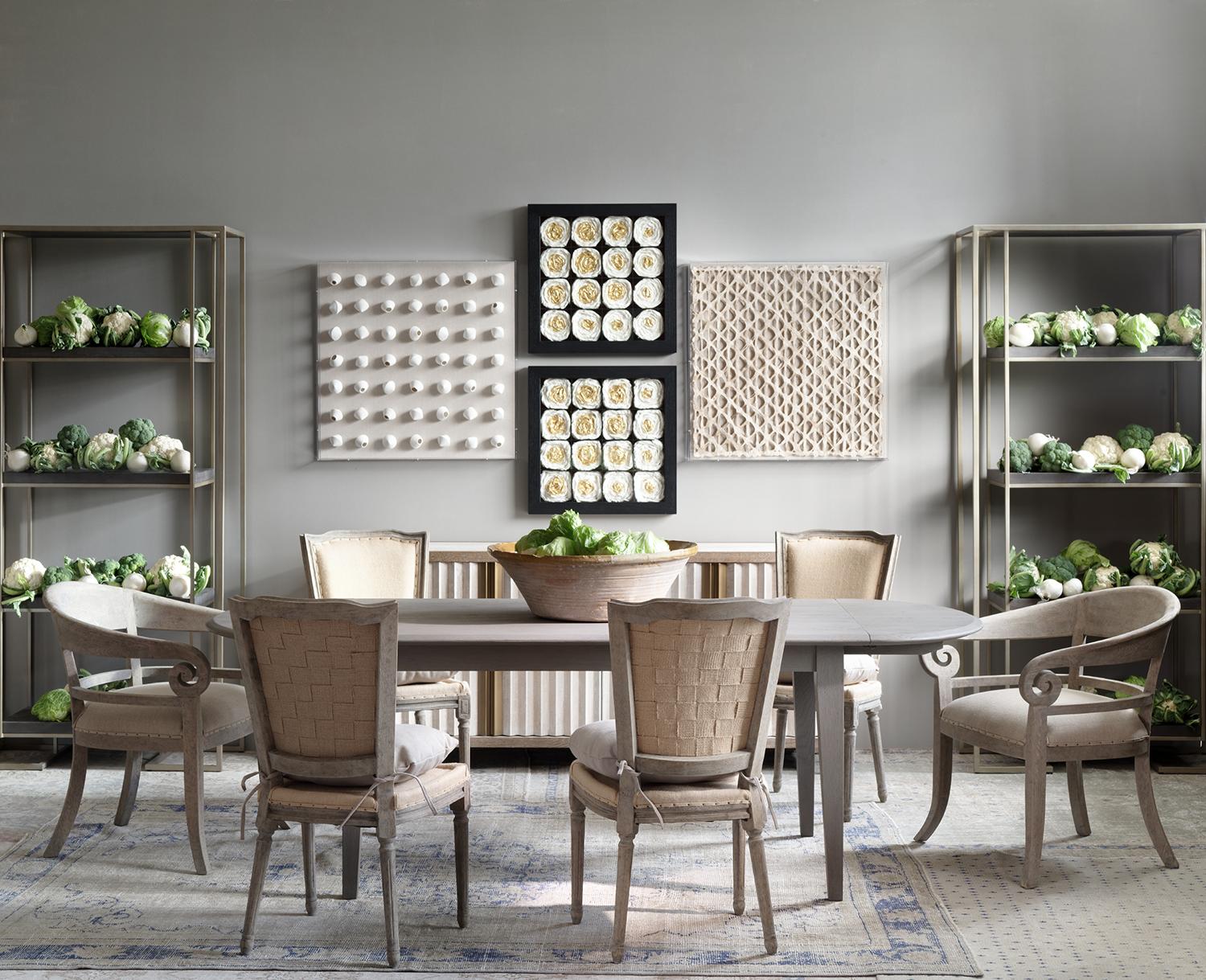
Godrich Interiors is a London-based interior design studio with a strong artistic focus in all its projects. Co-founder and creative director Ed Godrich believes art is vital to the creation of a scheme. “Art is always our starting point for designing an interior space, so it’s very personal,” he says.
The same is true, it seems, for product designers. Art need not always be displayed in a box frame, on a canvas or perched on a stone plinth. The design team at Sheridan Australia has taken it upon themselves to create beautiful collections of bedding inspired by commissioned artworks by in-house artists.
“The designs for our collections are created as artworks – they’re not engineered textile designs but genuinely art on the bed,” says Joanna Ross, general manager of design at Sheridan.
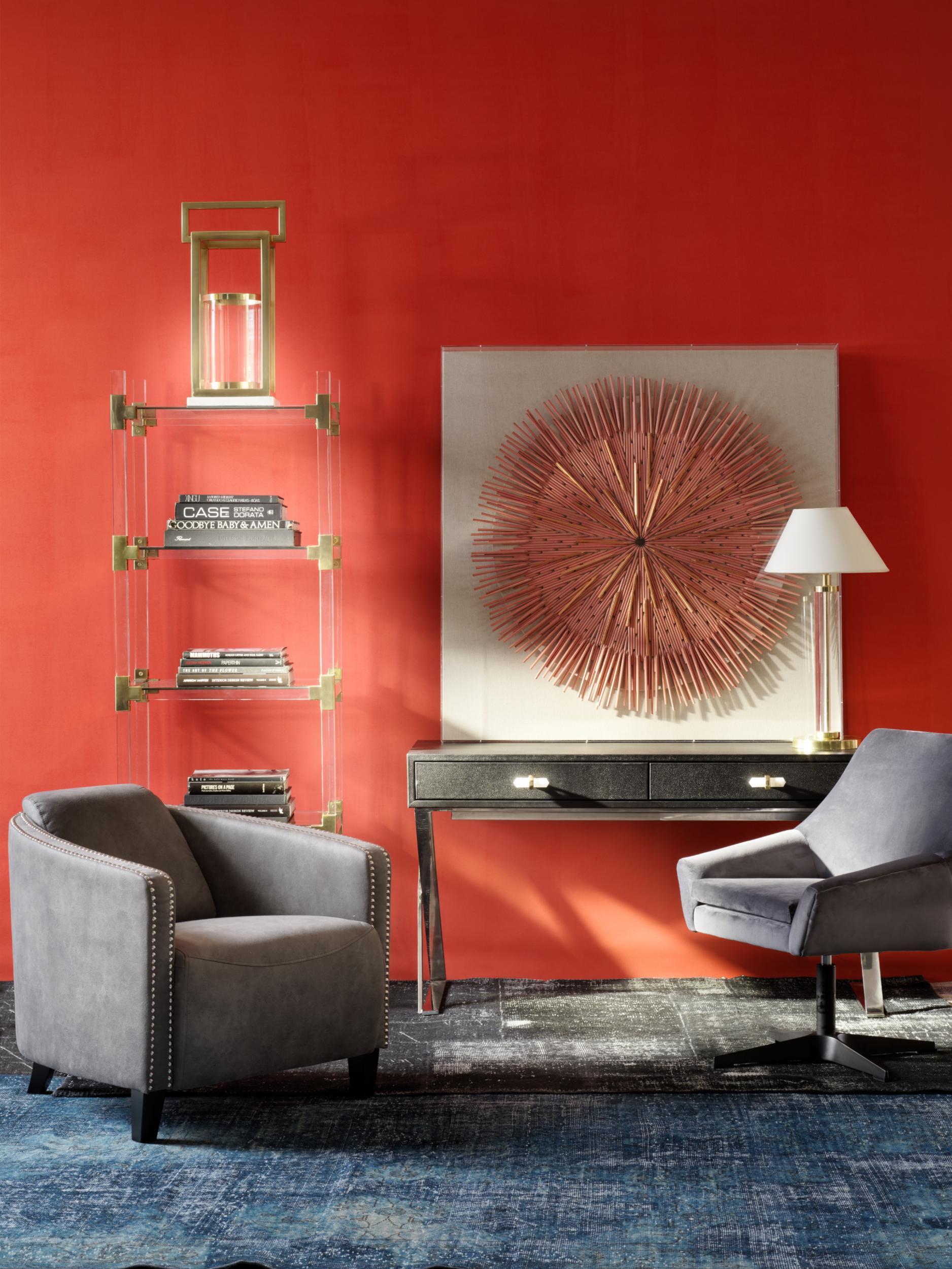
For each seasonal collection, Sheridan sends a team of artists to an area of outstanding natural beauty in Australia to paint and draw from the wildlife and the landscape. For the SS18 collection, the team of artists travelled through South Australia, from the ancient Flinders Ranges to the tropical peaks of Mount Gambier to take inspiration for a light, airy and painterly look.
The sketched and painted designs are digitised in the Sydney design studio and printed onto the linens for sale in the UK and in Australia.
Art and interiors are inextricably linked in complex aesthetic and emotional ways for designers and homeowners. The focus on (and value of) art in new projects and product launches is obvious. From the imminent billion dollar price tag on the next Da Vinci, Picasso or Hirst piece up for auction, to the recent addition of affordable art collections to high-street retailers like Oliver Bonas, consumers at each end of the financial scale, have become curators.
Join our commenting forum
Join thought-provoking conversations, follow other Independent readers and see their replies
Comments